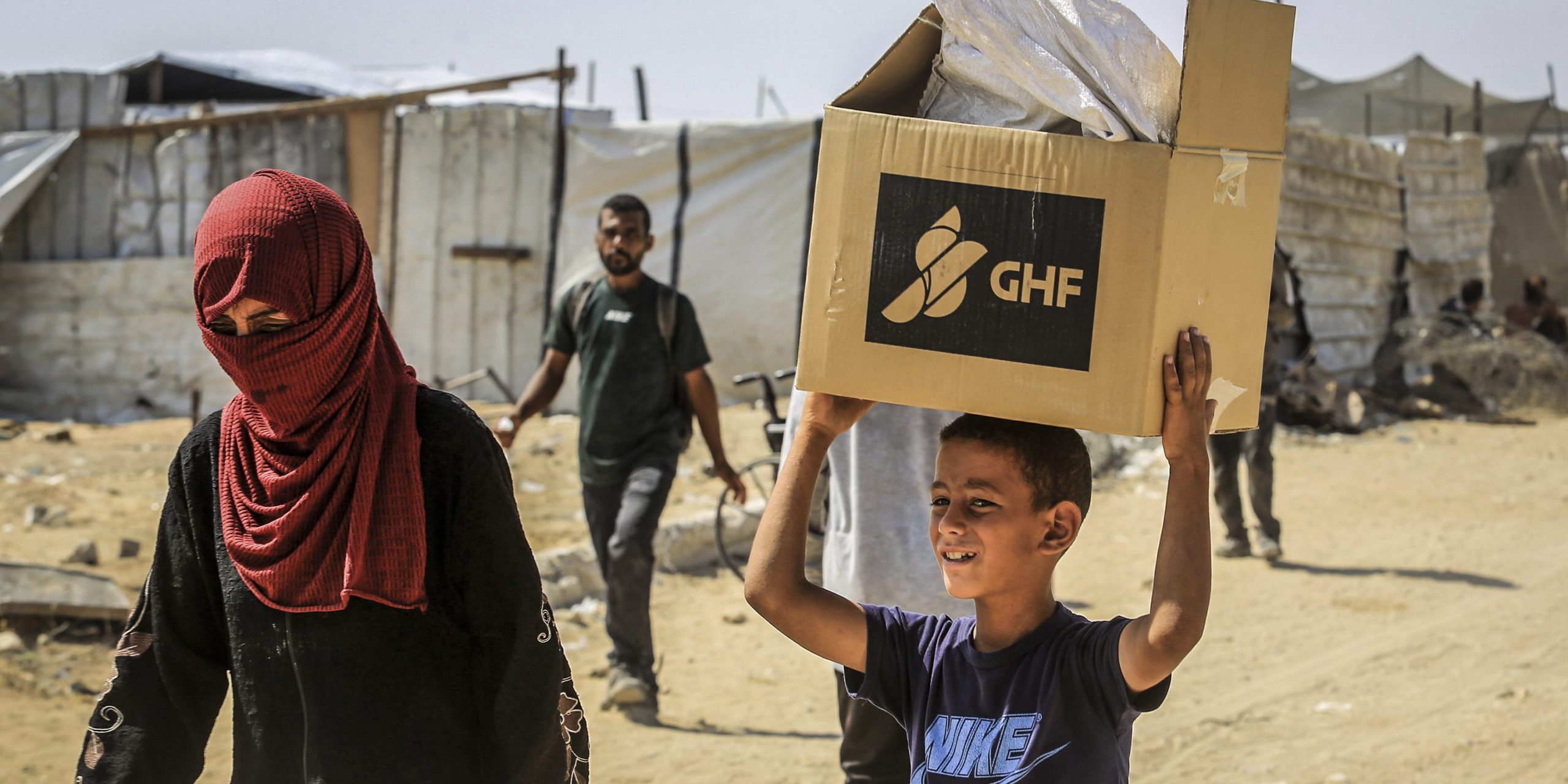Donald Trump’s recent proposal for Israeli-approved “food centers” in Gaza has ignited fierce criticism from humanitarian organizations, who assert that the vague plan utterly fails to address the escalating starvation crisis exacerbated by Israel’s persistent aid blockade. Announced amidst widespread acknowledgement of severe child malnutrition in Gaza, this initiative is seen by many as a superficial response to a deeply complex and urgent humanitarian catastrophe.
The details surrounding Trump’s scheme remain conspicuously broad, raising significant doubts about the seriousness of his intent to pursue it effectively. Aid groups are particularly wary of the rollout of yet another new food aid system, especially when previous American-backed distribution efforts have yielded limited success and faced substantial operational challenges. The critical concern revolves around whether a new system can truly overcome the fundamental impediments to aid delivery.
Experts emphasize that Gaza’s vulnerable population is in desperate need of more than just food; specialized medical care is crucially required to reverse severe malnutrition. Dr. John Kahler, a pediatrician and co-founder of MedGlobal, unequivocally stated that the proposal is “ludicrous,” advocating for a straightforward solution: “Stop the bombing, open up the gates, and let the people who know how to do it, do it.” This sentiment underscores the belief that existing mechanisms, if allowed to operate freely, are far more effective.
Key questions about the “food centers” persist without official answers: who would manage them, how would they be funded, where would they be located, and would they be militarized like previous distribution operations that led to deadly strikes on aid-seekers? Trump’s suggestion that Israel would “preside” over these centers to ensure “proper distribution” only heightens concerns among those familiar with the region’s complex dynamics and Israel’s past justifications for aid restrictions.
Members of Congress, including Senator Tim Kaine, have voiced strong skepticism, questioning the necessity of U.S. involvement in direct aid distribution. Kaine highlighted the existence of established professional organizations like the World Food Programme, Mercy Corps, and World Vision, suggesting they are better equipped for such complex humanitarian operations. He pointed to past U.S. efforts, describing them as a “joke” and a “disaster,” diminishing American credibility in this crucial sphere of international diplomacy.
Funding remains another major unresolved issue, with Senator Rand Paul notably questioning who would bear the financial burden. Paul’s query, “What, is Israel going to pay for them?” reflects a broader concern that the responsibility for financing humanitarian crises typically falls upon those most directly involved. This financial ambiguity further compounds the skepticism surrounding the feasibility and sustainability of Trump’s proposed centers amidst an already strained global aid landscape.
The current humanitarian crisis has deep roots in systematic aid obstruction. Congress’s defunding of the United Nations Relief and Works Agency (UNRWA) last year, long a vital hub for aid distribution in Gaza, severely compounded the problem. Furthermore, Israel’s complete halt of aid deliveries between March and May directly precipitated dozens of malnutrition-related deaths, illustrating the dire consequences of restricting humanitarian access.
Since the aid pause was lifted, the Gaza Humanitarian Foundation (GHF), a U.S. and Israeli-supported nonprofit, has served as the primary conduit for American aid. However, aid groups like Oxfam America express significant apprehension that Trump’s latest plan might simply expand GHF’s operations, which have also faced “systematic obstruction by the government of Israel.” Oxfam’s own attempts to deliver aid have been severely constrained, underscoring persistent challenges despite international outcry.
Amidst mounting international pressure, Israel recently indicated it would ease access for humanitarian groups, yet the scale of the crisis demands immediate and comprehensive action. Experts warn that current deaths from malnutrition, dehydration, water-borne diseases, and lack of shelter are poised to accelerate. The imperative is clear: solutions must span all sectors and ensure that aid, including food parcels, effectively reaches the most vulnerable populations who also lack access to clean water and fuel.






Leave a Reply